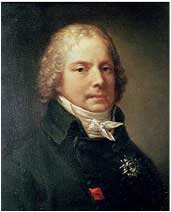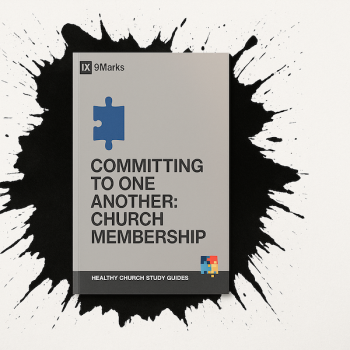By Joseph Loconte
 The French statesman Talleyrand returned from a visit to the United States during Jefferson's presidency and was out of sorts. He was struck by the diversity and energy of the nation's religious groups -- quite unlike anything in his native Catholic France. But that wasn't what troubled him. "I found there a country with thirty-two religions," he remarked, "and only one meat sauce."
The French statesman Talleyrand returned from a visit to the United States during Jefferson's presidency and was out of sorts. He was struck by the diversity and energy of the nation's religious groups -- quite unlike anything in his native Catholic France. But that wasn't what troubled him. "I found there a country with thirty-two religions," he remarked, "and only one meat sauce."
European elites, as well as their American counterparts, are much more worried about American religion these days than they are about American cuisine. Indeed, ever since the terrorist attacks of 9/11, a storm cloud of suspicion -- and outright hostility -- has settled over the debates about religion and public life. Unchecked, it not only will poison our politics, but weaken our democratic freedoms.
The problem is truly transatlantic. European leaders, for example, openly mock the "theocratic" flavor of American politics. Just days after a second round of bomb attacks in London, Polly Toynbee of The Guardian starkly warned about religious conservatives of all kinds. "How could those who preach the absolute revealed truth of every word of a primitive book not be prone to insanity?" she asked. Criticism of conservative belief, though, is equally strident among American progressive elites. William Thatcher Dowell, of New York University, sees support for the public posting of the Ten Commandments as "made-in-America Wahhabism." Historian Arthur Schlesinger Jr. calls President Bush "a fanatic" because of his use of moral and religious language. "The most dangerous people in the world today," Schlesinger writes, "are those who persuade themselves that they are executing the will of the Almighty." Author Gary Wills says the political prominence of Christian conservatives signals the eclipse of Enlightenment reason -- and an invitation to fanaticism. "Where else do we find fundamentalist zeal, a rage at secularity . . . fear and hatred of modernity?" he asks. "We find it in the Muslim world, in Al Qaeda, in Saddam Hussein's loyalists."
Others locate the problem not only with conservative religion, but with traditional belief in God. Writing in The New York Times Magazine just weeks after 9/11, Andrew Sullivan voiced a typical note of contempt: "If you take your beliefs from books written more than a thousand years ago, and you believe these texts literally, then the appearance of the modern world must truly terrify." His conclusion: "It seems almost as if there is something inherent in religious monotheism that lends itself to this kind of terrorist temptation." The same theme was sounded recently by Robert Reich, former Labor Secretary under President Clinton. "The great conflict of the twenty-first century will not be between the West and terrorism," he wrote. "The true battle will be between modern civilization and anti-modernists; between those who believe in the primacy of the individual and those who believe that human beings owe their allegiance and identity to a higher authority."
What an astonishing reversal: The American creed affirming the God-given worth of each individual -- the most transformative doctrine of liberal democracy -- is dismissed as an attack on "modern civilization." This is the new dogma of liberalism at the beginning of the twenty-first century. It represents not only a break with the religious beliefs of the vast majority of Americans; it is a radical departure from the democratic assumptions of the Founding generation.
For all their revolutionary idealism, the American Founders were the most realistic political leaders in history. No generation took the problem of human sin more seriously. None thought more deeply about how to reconcile the tragedy of human nature with the idea of representative government. "Even if every Athenian citizen had been a Socrates," warned James Madison in The Federalist Papers, "every Athenian assembly would have been a mob." In addition to a political system of checks and balances, they reasoned, democracies needed citizens of virtue -- and religion was the surest way to produce them.
The religion foremost in their minds, of course, was Christianity. Even Thomas Jefferson, perhaps the most religiously unorthodox of the Founders, praised the public benefits of faith. "No nation has ever yet existed or been governed without religion. Nor can be," he said. "The Christian religion is the best religion that has ever been given to man, and I as chief Magistrate of this nation am bound to give it the sanction of my example." John Jay was utterly sober in warning of the consequences of widespread disbelief. "No human society has ever been able to maintain both order and freedom, both cohesiveness and liberty apart from the moral precepts of the Christian religion," he said. "Should our Republic ever forget this fundamental precept of governance . . . this great experiment will then surely be doomed."




